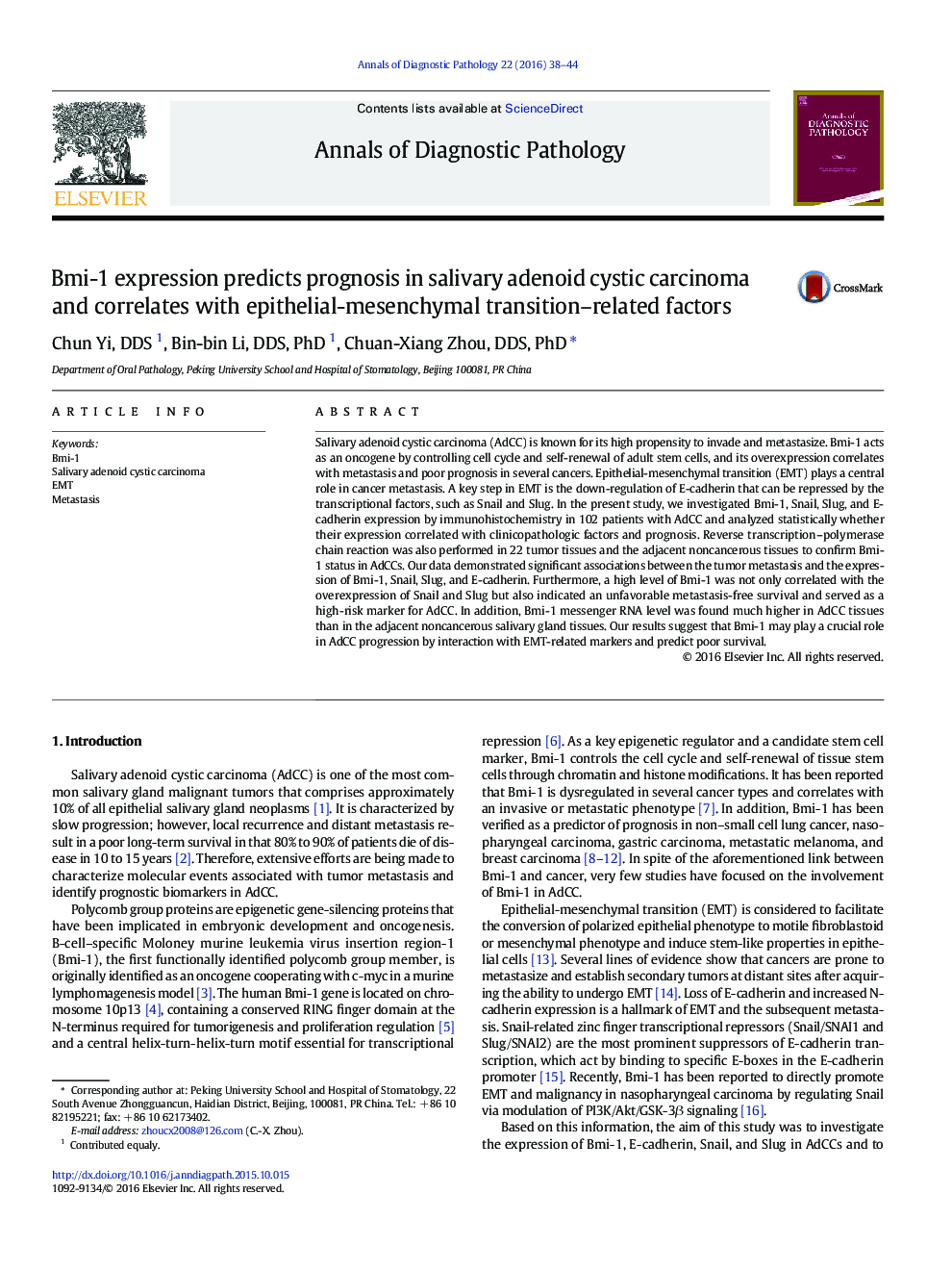| Article ID | Journal | Published Year | Pages | File Type |
|---|---|---|---|---|
| 4129720 | Annals of Diagnostic Pathology | 2016 | 7 Pages |
Salivary adenoid cystic carcinoma (AdCC) is known for its high propensity to invade and metastasize. Bmi-1 acts as an oncogene by controlling cell cycle and self-renewal of adult stem cells, and its overexpression correlates with metastasis and poor prognosis in several cancers. Epithelial-mesenchymal transition (EMT) plays a central role in cancer metastasis. A key step in EMT is the down-regulation of E-cadherin that can be repressed by the transcriptional factors, such as Snail and Slug. In the present study, we investigated Bmi-1, Snail, Slug, and E-cadherin expression by immunohistochemistry in 102 patients with AdCC and analyzed statistically whether their expression correlated with clinicopathologic factors and prognosis. Reverse transcription–polymerase chain reaction was also performed in 22 tumor tissues and the adjacent noncancerous tissues to confirm Bmi-1 status in AdCCs. Our data demonstrated significant associations between the tumor metastasis and the expression of Bmi-1, Snail, Slug, and E-cadherin. Furthermore, a high level of Bmi-1 was not only correlated with the overexpression of Snail and Slug but also indicated an unfavorable metastasis-free survival and served as a high-risk marker for AdCC. In addition, Bmi-1 messenger RNA level was found much higher in AdCC tissues than in the adjacent noncancerous salivary gland tissues. Our results suggest that Bmi-1 may play a crucial role in AdCC progression by interaction with EMT-related markers and predict poor survival.
